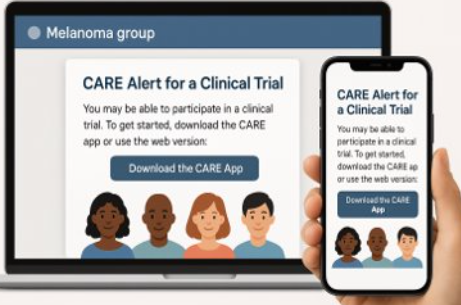Dr. Lisa Christopher-Stine is a Professor of Medicine and Neurology and the Director of the Johns Hopkins Myositis Center. Dr. Christopher-Stine received her MD degree from Hahnemann University School of Medicine where she also completed her internship and residency training in Internal Medicine. Dr. Christopher-Stine pursued rheumatology fellowship training at Johns Hopkins and joined the faculty of the Division of Rheumatology in 2003. She attained her Master of Public Health degree from the Johns Hopkins Bloomberg School of Public Health. She currently serves as the Chair of The Johns Hopkins Institutional Review Board (IRB5) at the Johns Hopkins Bayview campus, and she is the Deputy Director of Telemedicine in the Division of Rheumatology.
As a clinician scientist, she utilizes the Myositis Database she and her colleagues developed, currently numbering nearly 4000 patients recruited worldwide. She has a strong interest in patient-reported outcomes and has been the co-chair of an international effort through the OMERACT organization (committed to improving outcomes for patients with autoimmune and musculoskeletal diseases) to develop a novel patient-reported outcome measure.
Dr. Christopher-Stine is the clinical lead for the Clinical trial, AI-assisted Recruitment and Engagement (CARE) solution for patient-centered clinical trial recruitment. Her CARE team was a part of the 2025 Hexcite cohort. Hexcite is a start-up generator for internal multi-disciplinary teams to create a digital health solution drawn from a real clinical problem brought to the team by a Johns Hopkins clinician. “Hexcite was so different than anything I have ever done at Hopkins. It is a great program that allowed me to work within a newly constructed interdisciplinary team so unlike the clinical teams I am used to. It’s an extraordinary opportunity for professional growth in Entrepreneurship for the uninitiated like me,” says Dr. Christopher-Stine.

As a Principal Investigator for many clinical trials over the course of her career, Dr. Christopher-Stine observed first hand that many clinical trials discontinue prematurely or never launch at all due to poor recruitment. There are barriers for both patients and physicians that contribute to not getting enough study participants. Dr. Christopher-Stine’s team discovered that AI-powered patient matching with direct Epic electronic medical record (EMR) integration could help put patients at the center of clinical trials, reduce delays, and more quickly lead to life-saving therapies. FDA clearance is not required for this technology. The seamless process allows patients to ask questions about a study and its processes before enrolling in the study. “As we continue developing the technology, the possibilities for user engagement expand each day. Our greatest current challenge is integrating with the EMR systems. Protecting patient health data is, of course, a top priority for Johns Hopkins and other large healthcare institutions. Identifying a solution that enables access to data aligned with clinical trial inclusion criteria—without transferring any patient information unless the individual provides explicit consent to participate—is essential. Building trust with both the health system and patients will remain a central focus as we work to bring this technology to life.”
The team is in the process of building their model and plans to obtain funding to begin their first field test recruitment process in myositis. It is hoped that the CARE solution will ultimately assist a broad range of clinical researchers with study recruitment while keeping the patient at the center of this mission.